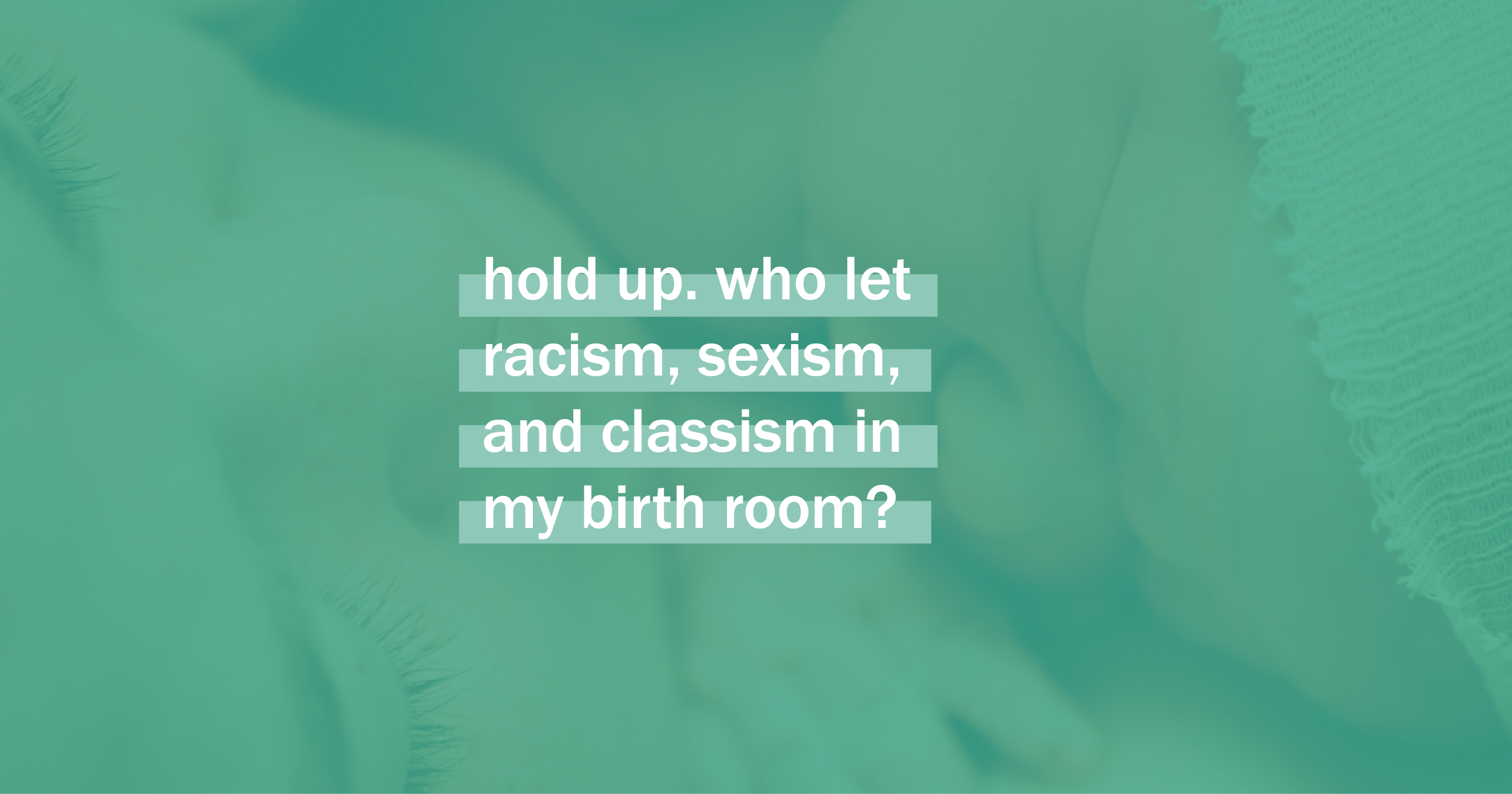One Size Doesn’t Fit All: Welcoming Parents Across the Spectrums
Photo by Elijah Hail on Unsplash
I've been thinking a lot lately about this whole "one-size-fits-all" concept and how it just doesn't work. And then it's alternative — putting people into all these different little boxes — and how that doesn't work either. Our intentions are great! We want to approach folks based on what we feel they want or need. But because no one ever really fits into boxes or "one-size" categories, we often end up missing really important parts of peoples’ identities and not being as welcoming as we could be — even if we're pretty darn welcoming naturally.
So what I’ve been thinking about today is… where do I see this, where am I in processing this, and how do I set myself up to avoid this? Journey with me into my humble reflections... I hope they can serve us both well!
Natural to Medicalized
We all see and hear about this all the time. There are classes and products and websites and all kinds of things marketed for those who are more “natural.” I’ve seen the opposite end of that projected sometimes as the “evidence-based” side, when that’s just not the opposite end at all. Natural childbirth and parenting can coexist with or stray from evidence as easily as more medicalized childbirth can do the same.
Take these two examples: water birth, and episiotomies. Water birth, often seen as a “natural” or “crunchy” option, has been affirmed as a safe, evidence-based practice by the American College of Nurse Midwives, the American Association of Birth Centers, and the Royal College of Midwives. Still, it’s use in hospitals has declined. Huh. And then we look at episiotomy, which is a surgical incision at the perineum given to widen the vaginal opening as baby is born, theoretically to prevent greater tearing. Evidence has contradicted this practice, saying it doesn’t really prevent further tearing and actually may cause worse tears. Yet, we still see this practice regularly performed in hospitals, at notably higher levels by obstetricians than by midwives.
The birth choices that people arrive at are also incredibly fluid because we never know how things may change in the moment. A parent may imagine a water birth at first and then decide to labor in a hospital bed with an epidural once labor gets active. I hope we continue to learn how to talk about this spectrum of birth options in a way that takes the pressure off, and just says, “You're giving birth to your baby through your power and hard work and presence, no matter how the details unfold. It’s 100% yours.”
Bottom Line: “Childbirth is a natural process that the child bearer’s body is equipped to flow through safely with minimal to no intervention in low-risk circumstances. Medical interventions are sometimes life-saving measures that fill the gap when risks and complications do arise and the natural process of childbirth cannot continue. Every parent should be aware of the risks of having more or less medical interventions, and be able to choose what they desire for themselves and their child.”
Gendered to Non-Gendered
Language and expectations surrounding birth, babies and parenthood in the mainstream are incredibly gendered. The majority and most visible images of pregnant people and babies show people who deeply identify with femininity (as that’s defined by the mainstream, geesh). Some people really deeply identify with and love their gender and celebrate it and that's great! It's just not always like for everyone.
There are pregnant folks who identify as female and what we traditionally consider feminine styles. There are folks who identify as female and what we traditionally consider masculine styles. There are folks who navigate and mix and match between those things. There are folks who identify as male and what we traditionally consider masculine. There are folks who identify as male and what we traditionally consider feminine. There are folks who say, “I don’t identify with either!” And this is all before even touching upon the expectations surrounding partners and how they present or identify.
Look, you do not have to understand how someone else has arrived at their identity to respect their identity and their expression.
Bottom Line: When we respect folks’ pronouns, how they present their bodies, what they wear, who they're with, and other such choices for their lives, we gain beautiful relationships and literally lose nothing.
Limited to Privileged
Lean into this with me, because I watch conversations about this topic unfold in birth work communities constantly and the way it's discussed puts me deeply in my feelings. I want to start with the bottom line.
Bottom Line: “Safe, high-quality, respectful care through pregnancy, birth, and postpartum should be readily available and accessible to all families regardless of income, race, ethnicity, language, gender or sexuality.” Deep breath. “Unfortunately, this is not currently the case in our medical system.” Final sentence, now. “As a birth worker, I best serve parents and all those around me when I recognize this, learn more about this, and advocate for a better system."
It’s incredibly important to talk about injustices parents face when navigating the birth world, and not try to treat them all the same.
I always talk to my clients about their rights — like how they can ask someone in the birth room to leave or be replaced, from family to nurses to doctors. I learned to do this quickly because, sadly, I have heard insensitive and ignorant comments made in birth spaces, and I have had parents reach out to me to talk through a situation in which they felt they may not have been treated fairly by medical providers.
It is good to talk about these things. As their birth doula, parents know that I can’t change the system we are engaging with, but they also know that I can be their safe space when that system misses that mark, that I can be an advocate and buffer that tempers the effect of the system’s shortcomings, and that they will never be alone in it. That can make a world of a difference.
And what does it mean working with parents with more privilege? No one should feel ashamed for being able to navigate the world smoothly. Everyone should learn that having a kind of privilege reveals an opportunity. Privilege is a kind of currency! You can spend it on yourself, or you can share it. When it comes to financial privilege, I know birth workers who work with higher-paying clients, who go, “You know, I'm fine with making $X but I’m going to make my fee $Y and donate the difference to an organization that supports folks who can’t afford my services.”
I think that is beautiful! Everyone deserves the same safe, quality, respectful care! We should all look for ways we can help bear each other's burdens in getting there.
There are A TON of other deeply important spectrums that we navigate our pregnancy, birth, parenthood, and general life journeys within. Here are just a few:
Faith and spirituality,
weighing our decisions and practices according to these compasses
Culture,
identifying with various pieces of our biological or regional ancestries
Personality traits,
drawing upon our sense of ourselves as intuitive or sensing, feeling or thinking, introverted or extroverted, planners or changeable, or anything else to guide our birth preferences
I am so grateful for the folks in my life who have open-heartedly gotten to know me on all these different levels. The only way they could have shown me they cared is by putting in the work.
So that's what I strive to do with the folks I work with, and everyone else in my life too. Put in the work to show that I care.














DYK 60-75% of body/breastfeeding parents bedshare — EVEN when they don’t plan to? Let’s talk about safe sleep!